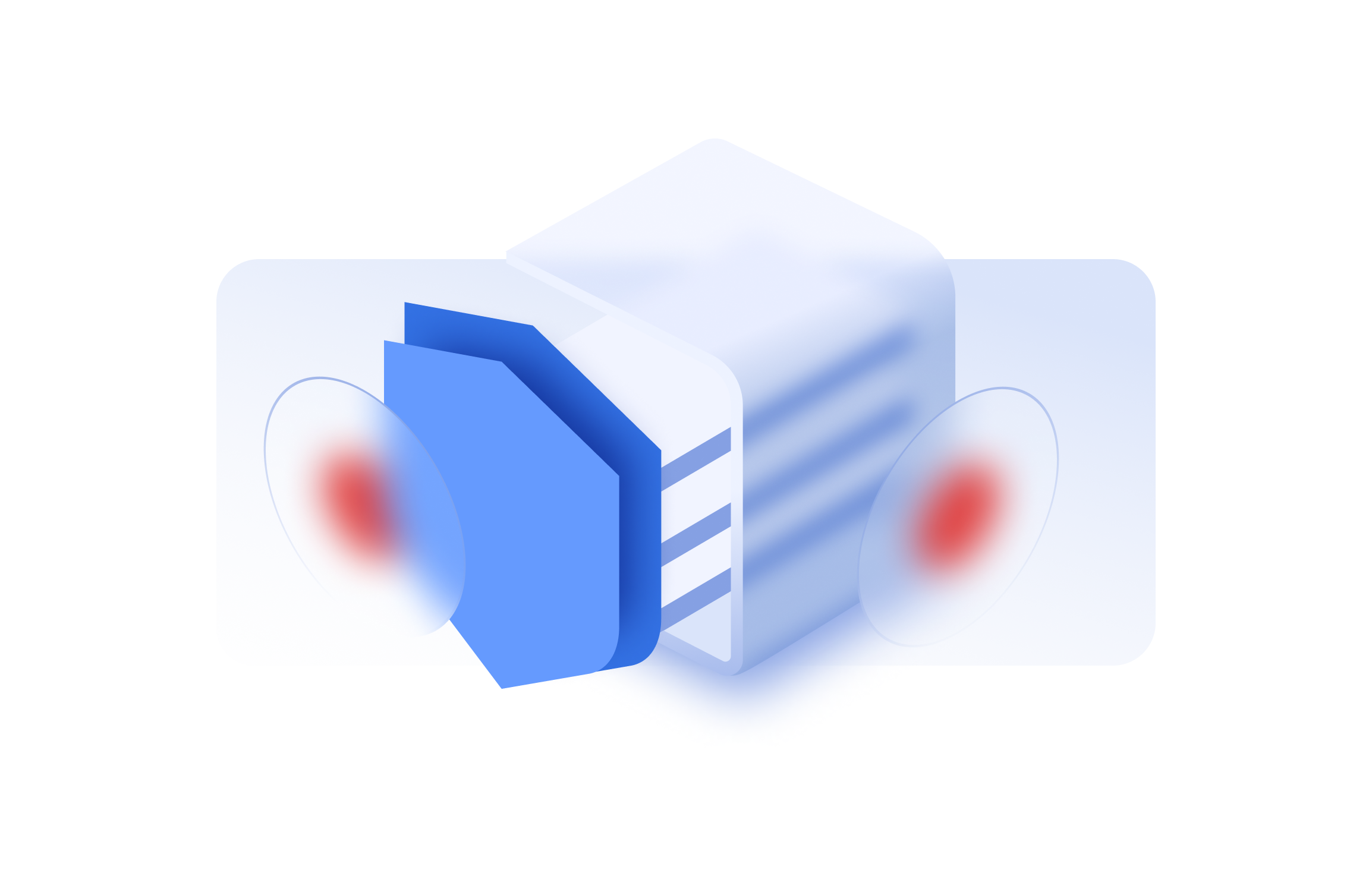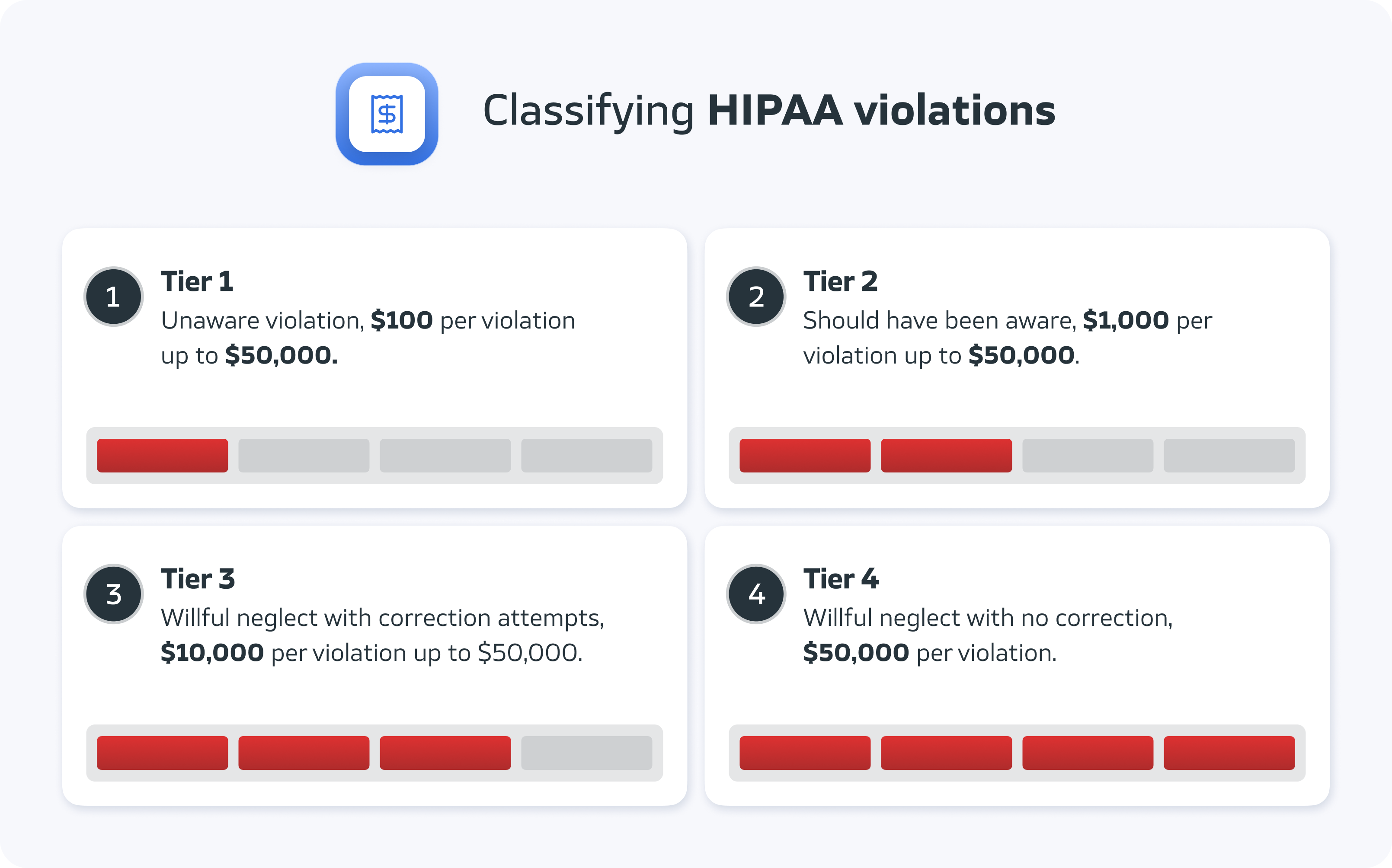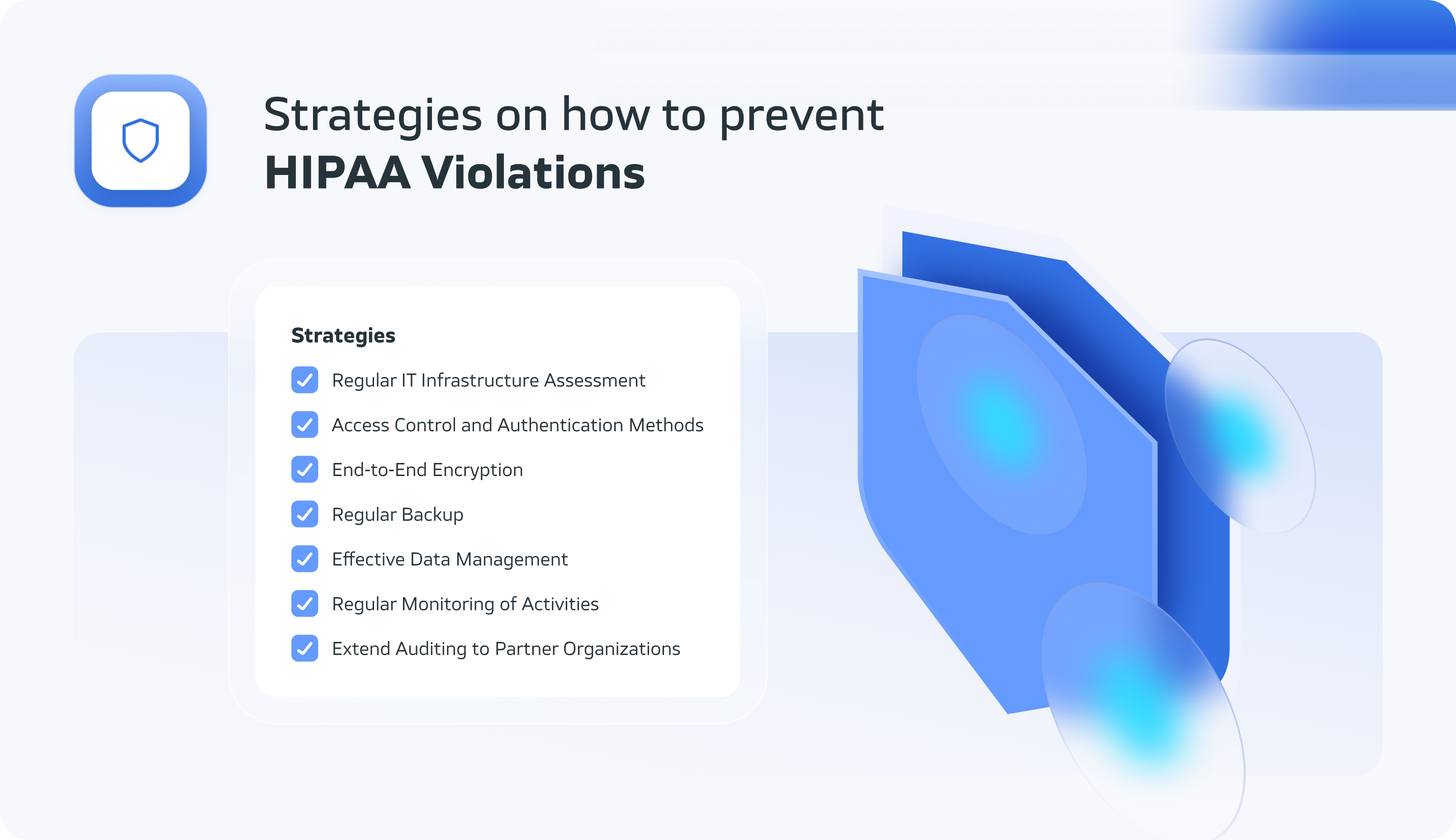
- Compliance
HIPAA Violations Examples and Their Consequences for MedTech/HealthTech Companies
HIPAA violations can lead to severe repercussions. In recent years, many MedTech businesses have faced this harsh reality. For instance, in 2018, Anthem Inc. was fined a whopping $16 million for a data breach affecting 78.8 million individuals.
In 2020, Premera Blue Cross was hit with a $6.85 million penalty for compromising the data of 10 million people. The following year, Excellus Health Plan, CHSPSC LLC, and Aetna were fined amounts ranging from $1 million to $5.1 million for similar breaches.
This blog post delves into these and other cases, discussing typical HIPAA violations and offering tips to strengthen healthcare data security to avoid hefty fines.
Table of Contents
What Are HIPAA Violations?
Understanding HIPAA violations is crucial for anyone handling sensitive patient information in the U.S. Enacted in 1996, this federal law defines violations as improper access or disclosure of patient personal health information (PHI).
Unauthorized disclosure of medical records and security procedure errors are examples of breaches with significant legal and ethical consequences.
HIPAA Rules and Regulations
HIPAA introduced three main regulations to safeguard patient data. The Privacy Rule pertains to the protection of health information that can be linked to an individual. The Security Rule establishes standards for protecting electronic health data.
The final rule is the Breach Notification Rule, which outlines procedures for reporting data leaks. All these regulations are enforced by the Department of Health and Human Services’ Office for Civil Rights (HHS).
Classification of HIPAA Violations
HIPAA breaches are classified into four levels, considering the severity of the offense and other circumstances.
Level 1 – Unaware Violation
Penalties are $100 per violation but do not exceed $50,000. This applies when a company was unaware of the breach and could not have reasonably foreseen it.
Level 2 – Violation Due to Negligence
For a breach that should have been recognized, the penalty is $1,000 per violation, capped at $50,000. This concerns situations where the company could have avoided the breach with more attention to patient data processing.
Level 3 – Willful Neglect with Attempted Correction
If willful neglect occurred, but efforts were made to correct it, the penalty is $10,000 per incident, up to a maximum of $50,000. Here, the data processor was aware of the incident but took steps to rectify it.
Level 4 – Willful Neglect without Attempted Correction
In the most severe case, where there was willful neglect and no corrective action, the penalty is $50,000 per violation. This applies when the violator was fully aware of the breach and consciously ignored the regulations.
 Determining Factors in HIPAA Violations Penalties
Determining Factors in HIPAA Violations Penalties
Penalties for HIPAA violations, as determined by the Office for Civil Rights (OCR), are based on various factors. These include the duration of the breach, the number of affected individuals, the type of data involved, the violating entity’s history, financial condition, and the extent of harm. Starting from October 6, 2023, penalties have been adjusted for inflation.
Examples of HIPAA Violations and Their Consequences
Unauthorized Access to Health Records
Employees who access health records without authorization can face severe consequences. For instance, the University of California, Los Angeles, was fined $865,000 for such a violation.
Lack of Risk Analysis
Failing to conduct a risk analysis can lead to hefty fines. Premera Blue Cross, for example, was fined $6,850,000, and Excellus Health Plan $5,100,000 for this oversight.
Improper Security Risk Management
Inadequate internal security risk management can result in significant penalties, as seen with the Alaska Health Department ($1.7 million) and the University of Massachusetts ($650,000).
Denial of Access to Health Records
Refusing patients to access their health records is a serious violation. Great Expressions Dental Center was fined $80,000, and Cignet Health $4,300,000 for such actions.
Lack of HIPAA-Compliant Business Agreements
MedEvolve Inc. faced a $350,000 fine, and Raleigh Orthopedic Clinic $750,000 for lacking agreements with providers compliant with HIPAA regulations.
Insufficient ePHI Access Control
Anthem Inc. was fined $16 million, and Memorial Healthcare System $5.5 million for inadequate control over access to electronic protected health information (ePHI).
Poor ePHI Protection on Mobile Devices
Inadequate security of ePHI on devices like laptops led to high fines for Children’s Medical Center of Dallas ($3.2 million) and Catholic Health Care Services ($650,000).
Delayed Data Breach Notifications
Exceeding the 60-day limit for data breach notifications resulted in fines for Oklahoma State University Center for Health Sciences ($875,000) and Presence Health ($475,000).
Unauthorized Disclosure of Patient Data
Illegal disclosure of patient data (PHI) led to fines for Dr. U. Phillip Igbinadolor, D.M.D. & Associates, P.A. ($50,000) and Memorial Hermann Health System ($2.4 million).
Improper Disposal of Patient Data
Ineffective data disposal resulted in fines for New England Dermatology and Laser Center and Parkview Health, amounting to $300,640 and $800,000, respectively.
HIPAA Breach Prevention Strategies – Fundamental Principles
Regular IT Infrastructure Audits
It’s critical to review and assess your IT and administrative systems regularly. Special attention should be paid to how patient health information (PHI) is stored and shared, as well as measures to prevent potential security threats.
Access Limitation and Authentication Methods
Limiting access to patient data to only those who genuinely need it is key. Employing strong passwords, multi-factor authentication, and auto-logout features further secures the data.
End-to-End Encryption
Encrypting health data, both at rest and in transit, is essential. Utilizing advanced cryptographic protocols helps protect this information from unauthorized access.
Regular Backup Creation
Systematic backups are essential to protect data from accidental loss. These backups should be securely stored and regularly updated.
Data Management
Minimize the amount of stored personal data and regularly delete unnecessary information.
Activity Monitoring
Tracking who accesses patient data and when is vital. Logging activities related to PHI access helps detect and prevent unauthorized access.
Verification of Business Partners
Ensure that all business partners also comply with HIPAA rules. Signing appropriate agreements and thoroughly checking how partners manage health data access is advisable.
 LifeTraq – A HIPAA Compliant Solution
LifeTraq – A HIPAA Compliant Solution
LifeTraq, developed by Blurfy, is an interactive behavioral platform designed to support individuals facing challenges comprehensively. It’s utilized by the South Carolina Department of Corrections and implemented in the toughest prisons in the United States, addiction treatment centers, and the education system.
The system is tailored to the needs of the justice system, with particular attention to HIPAA compliance. Our team has implemented various security features, such as data encryption and two-step verification, ensuring LifeTraq meets all HIPAA requirements.
Moreover, the application operates directly on tablets provided to prisoners, for which Blurfy has implemented multiple security measures to prevent external access.
Summary of Key Steps to Prevent HIPAA Violations
To avoid HIPAA breaches, it’s crucial to employ specific strategies. Fundamental actions include regular IT system reviews, limited access to health data, encryption, backup creation, proper data management, monitoring, and partner verification.
The LifeTraq platform encompasses all these aspects, offering a secure, HIPAA-compliant solution.
At Blurfy, we create secure, HIPAA-compliant solutions, specializing in the protection of medical data and adherence to regulations. With years of experience collaborating with MedTech enterprises, we offer customized systems that support innovation and operational efficiency. Our MedTech applications are tailored to the complex regulations of the industry, ensuring HIPAA compliance while supporting technological advancement and process optimization.
Our team’s commitment to tracking the latest trends at the intersection of technology and medicine allows us to deliver forward-looking solutions, focusing on supporting partners in maintaining competitiveness and adapting to the dynamically changing MedTech environment.
Need support? Reach out to us to build a system that guarantees patient data security and supports your company’s growth.
Contact us, and we’ll provide a free estimate for your HIPAA-compliant application.



 LifeTraq – A HIPAA Compliant Solution
LifeTraq – A HIPAA Compliant Solution



